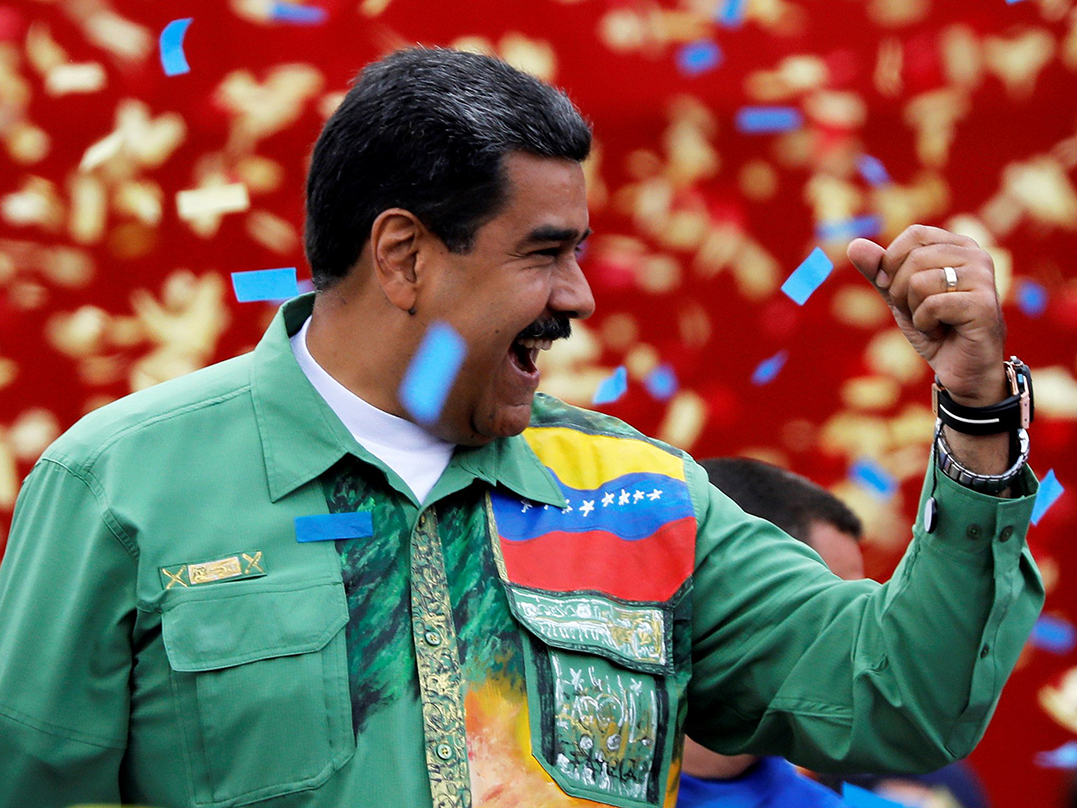 Trump administration officials have made thinly veiled calls for a military coup that would topple the Venezuelan dictatorship and pave the way for democracy.
Trump administration officials have made thinly veiled calls for a military coup that would topple the Venezuelan dictatorship and pave the way for democracy.
But some well-respected academics are warning that a military coup would more likely produce a Russia or China-backed anti-American dictatorship.
Evan Ellis, a Latin America expert with the U.S. Army War College’s Strategic Studies Institute, and Brian Fonseca, a professor at Florida International University who has written extensively about the Venezuelan military, are among those who believe that a military coup in Venezuela would probably lead to a pro-Russian or pro-China regime, rather than to a pro-American one.
“The United States has not had ties with the Venezuelan military in nearly two decades, and Russia, China and Cuba have filled that space,” Fonseca told me. “The Russians and the Chinese have replaced the United States as a key partner to the Venezuelan military.”
Venezuelan military officers have been attending Russian and Chinese military schools for years, and Venezuela is the biggest buyer of Russian and Chinese military equipment. In addition, there are large numbers of Cuban advisers across the Venezuelan security apparatus, he said.
Both experts, with whom I talked separately in recent days, agree that it will be hard for Venezuelan dictator Nicolás Maduro to cling to power for much longer, and that Venezuela’s sham May 20 election will not help him revert his economic and political troubles.
Venezuela’s economy has collapsed, and inflation is expected to reach 13,000 percent — the highest in the world — this year, according to International Monetary Fund estimates. The humanitarian crisis is worsening by the day, to the point that the minimum salary has fallen to $3.6 dollars a month — barely enough to buy two cans of tuna.
Oil production, which accounts for 90 percent of Venezuela’s income, has plummeted from 3.5 million barrels twenty years ago to less than 1.5 million barrels today. Five of the six oil refineries on Venezuelan territory are nearly paralyzed, and Venezuela’s creditors are starting to go after the country’s assets.
Amid this rapid descent into chaos, Russia and China — which have major oil investments in Venezuela – may have decided it’s time to change management to protect their interests, Ellis and Fonseca say.
The Trump Administration’s not-so-veiled calls for a coup in Venezuela could be an additional factor prompting Russia or China to step in. White House Senior Director for Latin America, Juan Cruz, recently called on the Venezuelan military “to respect the oath they took to perform their functions” and defend the Venezuelan constitution, rather than the Maduro dictatorship.
Fonseca told me that “Russia or China could sense that the United States is edging closer and closer to action in Venezuela, and that if a pro-U.S. regime comes to power, that could dilute their respective interests in Venezuela.”
Ellis, of the U.S. Army War College, says that a Russia and China-backed coup could help both countries get additional rights to exploit Venezuela’s oil fields. In exchange, China and Russia may offer new grace periods on Venezuela’s debts and technical assistance to revamp the country’s oil production.
“The Chinese and Russians would be running the oil fields, paying off the corrupt Venezuelan elites, and paying enough rent to keep the Venezuelan military happy, while extracting oil for their own strategic benefit,” Ellis told me. “That would assure them the continuation of a friendly regime in close proximity to U.S. shores.”
Ellis said that “the Russians and the Chinese would be running the country. And, as long as there were no Russian or Chinese military bases, there would be those in Washington who would say that it wouldn’t be a problem.” He added, “That would be a big mistake.”
My opinion: As Venezuela’s humanitarian crisis continues to worsen, nobody can rule out a new popular uprising or a military rebellion.
But after listening to Ellis and Fonseca, I’m not willing to bet that a military coup would necessarily bring about a restoration of democracy and a more U.S.-friendly government. It could also produce a more efficiently-run Russian or Chinese economic protectorate.





